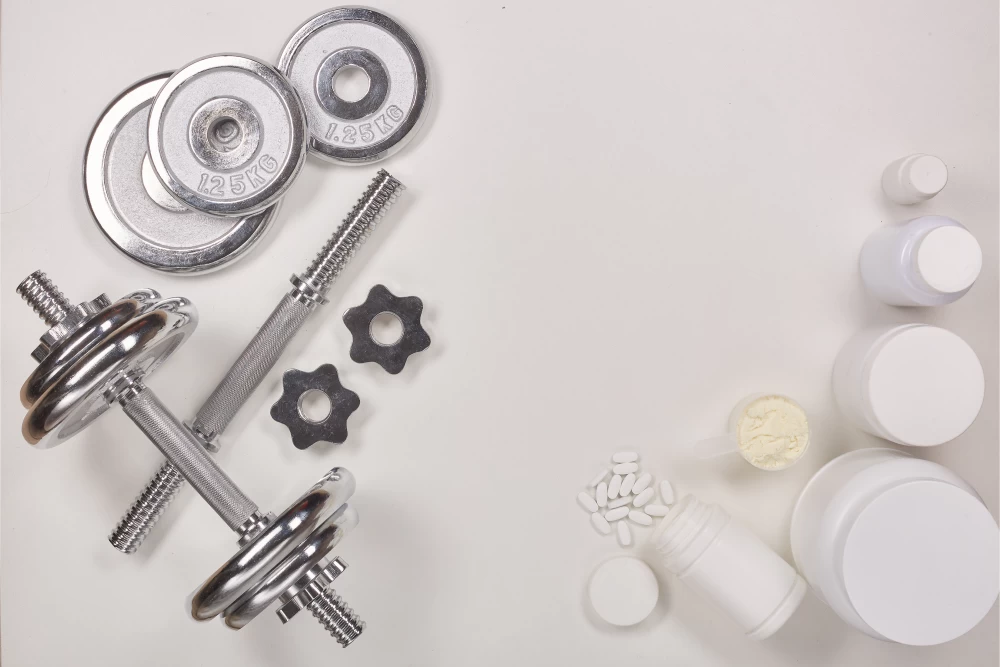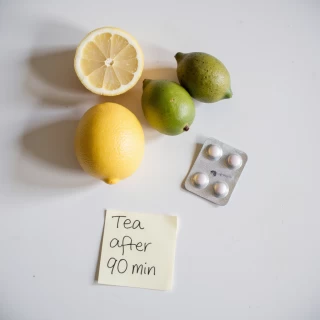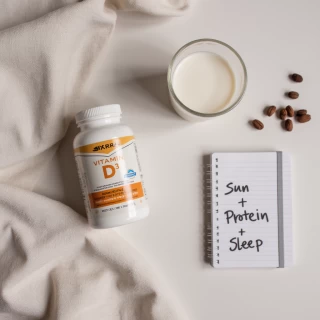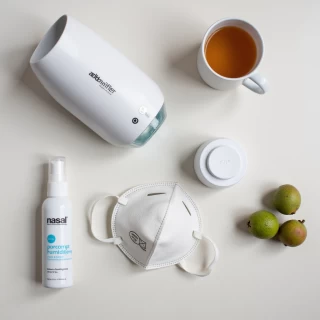
- 27th July 2023
Table of Contents
- The Role of Diet in Athletic Performance
- The Role of Macronutrients in Physical Performance
- The Role of Vitamins and Minerals in the Human Diet
- Maintaining Adequate Fluid and Food Intake
- How to Get the Most Out of Your Workout and Your Rest Period Through Proper Nutrition
- Safely Boosting Athletic Performance with Supplements
The Role of Diet in Athletic Performance
Because it allows the body to function optimally, nutrition is an important factor in athletic performance. In order to fuel their high energy needs and perform at their best, athletes have unique dietary needs that are not met by the typical diet. Athletes can only perform to their full potential if they get the right nutrients and fluids before, during, and after their workouts.
Carbohydrates are an essential part of an athlete's diet because they are the muscles' major source of energy during intense exercise. Building and mending muscle tissue that has been injured by exercise is another important function of protein. Furthermore, good fats can be a source of continuous energy, making them ideal for long-distance competition. Dehydration can hinder performance and increase the likelihood of injury, making it an equally crucial component of sports nutrition.
In order to keep from becoming dehydrated, athletes should attempt to consume fluids frequently before, during, and after their workouts. In general, an athlete's performance can benefit greatly from eating well. Athletes can improve their physical condition and lower their risk of injury or sickness by eating a diet rich in carbs, protein, healthy fats, vitamins, minerals, and water.
The Role of Macronutrients in Physical Performance
In order to function normally, our bodies need a steady supply of macronutrients. Carbohydrates, proteins, and lipids are all examples. We can't achieve our full potential without all three types of macronutrients. Carbohydrates are the most important food supply for working muscles. They are metabolised into glucose and stored as glycogen in the muscles, providing fuel for prolonged physical activity.
Proteins are crucial for a number of reasons, including immune system health, hormone production, and muscle growth and repair. Fats aid in vitamin absorption and give steady energy for strenuous exercise. In order to achieve peak performance and speedy recovery, athletes and other physically active people must adequately nourish their bodies with macronutrients. This can be accomplished by eating a diet rich in complex carbs, such as those found in whole grains and fruits, as well as lean proteins, like those found in chicken or fish, and healthy fats, like those found in avocados and nuts.
The timing of macronutrient consumption is also significant, with carbohydrate consumption before exercise shown to improve performance and protein consumption after exercise shown to aid in recovery. A person's performance in sports and daily life can be improved by learning how each macronutrient contributes to overall health.

The Role of Vitamins and Minerals in the Human Diet
Vitamins and minerals are examples of micronutrients that are essential to sports nutrition and fueling for athletic performance. These nutrients are critical for optimum health and well-being and for bringing out one's full athletic potential. Vitamins including vitamin C, vitamin B, and vitamin D are essential for maintaining proper energy production, a healthy immune system, and strong bones.
Electrolyte balance, oxygen transport to tissues, and muscle contraction and relaxation all rely on minerals like calcium, iron, and magnesium. Due to increased energy expenditure during training and competition, athletes have greater dietary needs than sedentary persons.
Athletes with limited diets or unusual dietary needs due to food allergies or intolerances should pay special attention to ensuring they get enough of the micronutrients they need to perform at their best. In general, the best way for athletes to get all the micronutrients they need is to eat a varied, well-balanced diet. In some situations, you may also need to take a supplement to get enough of a certain vitamin or mineral.
Maintaining Adequate Fluid and Food Intake
Athletes need to be hydrated in order to perform at their best. The body's ability to regulate temperature, transmit nutrients and oxygen, and eliminate waste products all depend on how well hydrated it is. In order to prevent dehydration, athletes should drink fluids before, during, and after their workouts. How much water you need to drink depends on a number of factors, including the intensity of your workout, how long it lasts, the temperature outside, and how much you sweat.
Carbohydrates, found in sports beverages and gels, are essential for athletes to maintain optimal fueling throughout exercise. Carbohydrates are the body's principal source of energy during strenuous exercise. Electrolytes, such as sodium and potassium, are also found in sports drinks and aid in regulating the body's fluid levels. Athletes should try out various sports drinks to determine which ones perform best for them. Athletes must ensure they are getting enough to drink and eat as part of their game plan.
When these are ignored, athletes risk becoming dehydrated, exhausted, losing their stamina, and performing poorly. Athletes can maximise their performance on the field or court and reduce the hazards associated with poor nutrition and dehydration by consuming a combination of water and carbohydrate during exercise through the use of sports drinks or gels.
How to Get the Most Out of Your Workout and Your Rest Period Through Proper Nutrition
Athletes, in particular, need certain nutrients before and after training. Athletes may get the most out of their training sessions by ensuring they have enough nourishment to last throughout the activity. Carbohydrates like fruit or bread, which are simple to digest, are ideal for a pre-workout meal since they deliver energy without creating stomach pain.
What you eat after a workout is just as crucial to your recovery and muscular building as what you eat before. Within 30 minutes of finishing their workout, athletes should take a mixture of protein and carbs to restore glycogen stores and promote muscle regeneration. Meals high in protein, such as eggs, poultry, or protein drinks, are ideal for refuelling after exercise.
Athletes of varying sports, training loads, and body types have varying dietary requirements. Athletes can improve their performance and recuperation by working with a sports nutritionist to develop individualised diet regimens. Athletes can improve their performance and prevent burnout by eating well before, during, and after workouts in addition to three square meals per day.
Safely Boosting Athletic Performance with Supplements
Athletes are increasingly turning to supplements as a method to gain an edge. But you should take supplementing seriously and pick safe and effective items with attention. Protein powders, creatine, caffeine, and beta-alanine are all popular dietary supplements among athletes.
Protein powders are a handy way to up your protein consumption for muscle growth and repair, especially when you're working with the best dietician near me to optimize your nutrition. However, pick a product that has been independently verified as safe and pure to avoid any potential health risks. Your dietician can guide you in choosing the right protein powder that suits your needs and preferences.
Creatine is another well-liked substance for its ability to boost strength and power, and with the guidance of a professional dietician, you can incorporate it into your diet safely. When used as indicated, it poses no significant risk to health, though some people may have stomach upset. Your dietician will ensure that you are using it correctly and monitor any potential side effects.
Caffeine's effects on alertness and exertion perception allow it to improve endurance performance, and discussing its usage with best dietician in Dwarka, Dr. Pankaj Kumar can help you understand how to use it effectively. However, excessive caffeine use can cause undesirable side effects including rapid heart rate and anxiety, so moderation is key, and your dietician can help you find the right balance.
The non-essential amino acid beta-alanine has been shown to increase muscular endurance by decreasing the body's synthesis of lactic acid during intense exercise. Beta-alanine is normally harmless, however it could make you feel tingly or flushed. Your dietician will be able to advise you on the appropriate dosage and usage to minimize any discomfort.
In sum, working with the best dietician in Delhi and eating right is crucial to maximizing your performance and ensuring that you're using supplements like protein powders, creatine, caffeine, and beta-alanine safely and effectively. Your dietician can create a personalized nutrition plan that aligns with your fitness goals and helps you achieve optimal results while keeping your health in check.














